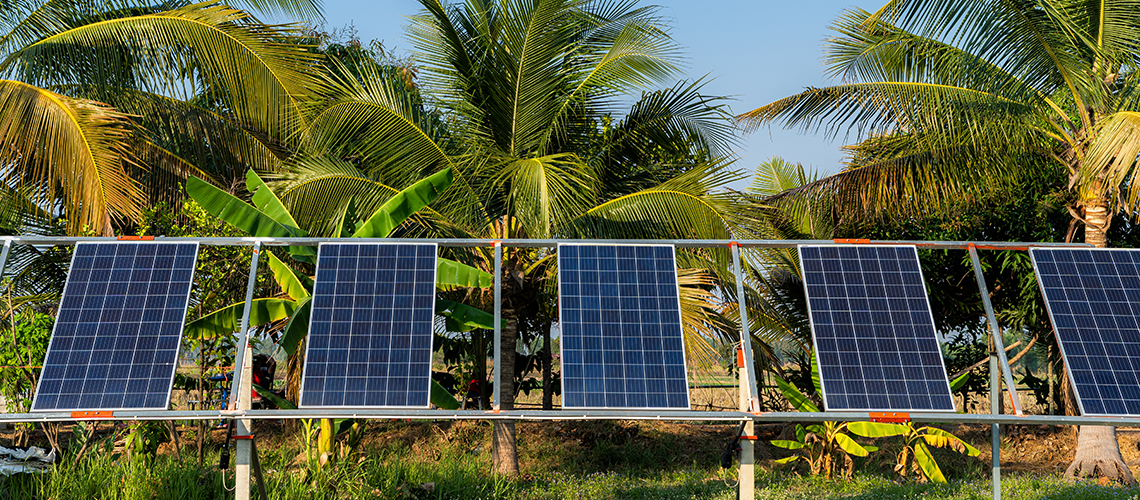Best Solar Panels in India: Types, Features & Expert Buying Advice

Switching to solar energy isn’t just about lowering your electricity bills; it’s about making a smart move toward a cleaner, greener future. And honestly, in a country like India that receives around 300 sunny days in a year, it’s only logical to put all that sunshine to good use. Whether it’s your home, office, or factory, solar power is one of the most practical and rewarding upgrades you can make.
But truth be told, buying solar panels can feel a bit overwhelming. Even if you manage to find the best solar panel manufacturing company in India, you’re still bombarded with different technologies, efficiency numbers, price tags, and a bunch of technical terms that sound like a foreign language. So, how do you figure out what’s actually right for you?
That’s exactly what this blog is here for. At Jindal India Renewable Energy Limited, we’re actively exploring and investing in the renewable space, including solar energy and have gathered a wealth of information to share with you. Here we break down the different types of solar panels available in India, the key features to look for, and expert tips to help you make the smartest solar investment for your space.
Types of Solar Panels You’ll Commonly Find in India
When you start exploring solar panels, you’ll quickly realise that there’s more than one type out there and each comes with its own pros and cons. Most solar panel manufacturers in the country offer three main types. Here’s a simple breakdown to help you understand the difference:
1. Monocrystalline Solar Panels
These are the sleek, black panels you often see on modern rooftops. Made from a single crystal of silicon, they’re super efficient at converting sunlight into electricity. Because they generate more power per square metre, they’re a great choice if you have limited space, like a compact rooftop in the city.
2. Polycrystalline Solar Panels
Think of these as the more budget-friendly sibling of monocrystalline panels. They’re made by melting together fragments of silicon, which makes them slightly less efficient, but also more affordable. If you’ve got plenty of roof space, these can be a solid and cost-effective option.
3. Thin-Film Solar Panels
These are lightweight, flexible, but not commonly used for homes. While they’re less efficient overall, they can handle heat and low-light conditions better than the other two. You’ll mostly find these in large-scale or industrial setups where space isn’t a constraint and performance in extreme conditions matters.
Key Features to Look for in a Solar Panel
If you're thinking of going solar, keep an eye on these essential features before buying from any Indian solar manufacturing company:
1. Efficiency
This determines how much of the sunlight your panel can convert into electricity. Aim for a panel with at least 17-20% efficiency for good returns.
2. Build Quality
Make sure the panels are certified for durability and safety. Look for IEC certifications, which confirm the panel’s performance in Indian weather conditions.
3. Warranty
Leading solar panel manufacturers offer a strong performance warranty of typically 25 years, indicating the panel's quality and reliability.
4. Temperature Coefficient
Since Indian summers are hot, this metric tells you how well the panel performs in higher temperatures. Lower is better.
5. Advanced Technologies
Look out for enhancements like PERC cells or half-cut cell designs, which improve efficiency and reduce energy losses.
Smart Buying Advice for Solar Panels
Before you make a purchase, here are a few expert tips to ensure you get the most out of your investment:
1. Evaluate Your Power Usage
Understand your average monthly electricity consumption. This will help you size your system correctly.
2. Check Roof Space and Orientation
South-facing rooftops get the best sunlight in India. Make sure your roof has enough space and minimal shading.
3. Don’t Just Chase Price
Cheaper isn’t always better. Focus on efficiency, build quality, and warranty. Choose the best solar panel manufacturing company in India.
4. Get a Site Assessment
Many providers offer a free site inspection. Use it to understand how much energy you can realistically generate.
5. Consider the Full System
Panels are just one part of the equation. Your inverter, mounting structure, and even wiring quality matter.
Final Thoughts
As solar energy continues to gain momentum across India, understanding what to look for—and who to watch—can give you a huge edge. From choosing the right type of panel to recognising reliable solar panel manufacturers, there’s a lot that needs to be done.
And while Jindal India Renewable Energy Limited (JIRE) may not be manufacturing panels right now, our growing presence in renewable projects shows a strong commitment to powering India’s future–one solar-powered home, factory, or city at a time.
Ready to go solar? The sun’s out, and so are the opportunities!